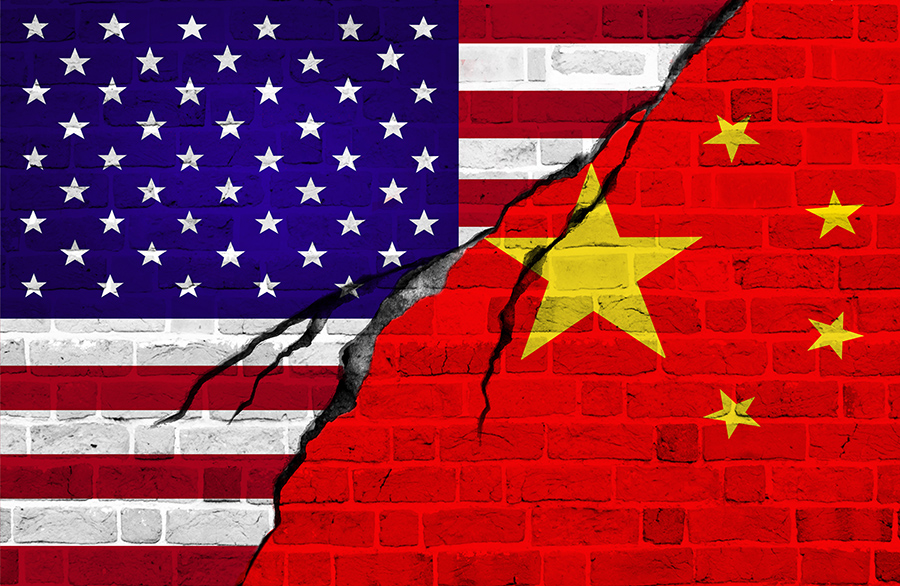President Trump never intended to resolve the trade war he created with China.
Instead,
he will leverage his tariffs to blackmail China into following his way.

Once again U.S.-China trade negotiations are at an impasse after numerous promises month after month that they were near a solution. Nearly everybody commenting on this is wondering what went wrong, yet few have even imagined the most likely answer: these negotiations are fake. They are intended to fail.
Nearly every pundit seems to believe that Trump genuinely wants an agreement. I have doubted that since the beginning. His aim all along has been to find an excuse to impose extraordinary tariffs, which he clearly believes benefit the U.S. economy and himself politically. The tariffs are not, for Trump, mere bargaining chips. They are not a means to an end, as many U.S. business interests vainly hope. Tariffs are an end in themselves for Trump. The negotiations are fake because Trump has no intention of trading them away. There is nothing he wants more than to continue the tariffs indefinitely. Even some of Trump’s own negotiators may not realize this, though the pattern ought to start to dawn on them soon. Treasury Secretary Steve Mnuchin brought another agreement to Trump last May that may have been about as good as the U.S. is going to get, but Trump shot it down.
After another year of negotiations, always supposedly poised at the brink of success, Trump scuttled them again by tweeting that he might keep tariffs on China even after any agreement to insure their “good behavior.” Americans are so used to assuming that bad faith is always on the other side and few pundits seemed to notice how crucial this was. Why would the Chinese agree to anything if they get no solid assurances that the extraordinary tariffs Trump imposed will be removed and not reimposed arbitrarily? Negotiations require an exchange. If you offer nothing you get nothing. Trump offers nothing but the threat of doing something even worse. This is not negotiation, but blackmail. If China gives in to blackmail, there is no assurance whatsoever that Trump will not continue to find problems and therefore another excuse to maintain or resume the tariffs. This is a slippery slope, not a negotiation.
The precedent here is the pattern of Trump’s other so-called “negotiations,” as I argued previously. I would add to those the current Iran imbroglio. Trump finds fault not to negotiate, but to bully and blackmail. This is what he believes it means to be tough. The point of bullying is to force an adversary to give you a free gift. There is no offer, merely a demand: Comply or else. If the adversary is weak you pocket their gift and reward their weakness, not with sympathy, but with another demand for even more. Double down and never apologize: these are lessons President Trump learned from his own father and from his mentor and surrogate father, mob attorney Roy Cohn.
Critics will immediately assume I am dismissing the merits of the U.S. trade complaints against China. That is not the issue. The justice of the U.S. claims does not affect the relative merits of the tactics used to obtain them. Like it or not, China is not a weak player; nor is it necessarily a sucker. Even the most rabid China critic must recognize that if the U.S. demands unconditional surrender, it must expect China to push back as long as it retains even a modicum of capacity to resist.
The trade talks have failed because Chinese negotiators realized that there is no quid quo pro on the table. Whatever Mnuchin or other Trump administration negotiators offer, all that matters is whether Trump himself is disposed to restrain his tendency toward arbitrary action. If Trump refuses to be bound in his future actions, no rational opponent would concede, at least, not more than empty words. The Chinese are blamed for empty promises, but really, if Trump can do what he wants, why should they agree to be bound in any way either? North Korea faces the same problem. Given a lawless opponent, concessions create a slippery slope toward surrender. If you do not stand up to a bully, the demands will never end.
This is why from the beginning of the U.S.-China trade talks China has insisted on commitments related to the process of mutual enforcement, not just the terms of surrender. China might agree to many things, but only on the assurance that any concessions will not lead down a slippery slope to a never-ending litany of further demands. Chinese negotiators express this as a demand to return to WTO rules, which may perhaps be supplemented by additional new rules. The WTO rules provide a dispute-resolution procedure under which Trump’s tariff attacks are illegitimate. If enforcement is based on clear, mutually agreeable and enforceable rules, China might negotiate.
The problem for China is that Trump is unlike any previous U.S. president. He does not approve of law or rule-based systems. He wishes only for unrestrained exercise of executive power. He does not want to assent to new rules; he just wants to demand specific results. This is no basis for agreement. Any paper agreement that is reached will surely soon fail, as in so many other instances of Trump’s bullying. “My way or the highway” may be emotionally satisfying for alpha males, but it is incongruous with negotiations and with the maintenance of a rule-based international system rooted in mutual interest in peace and prosperity.
